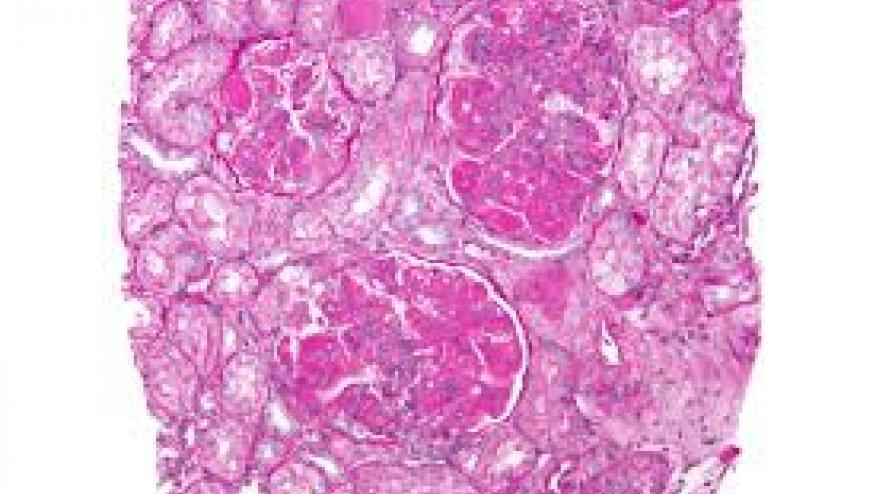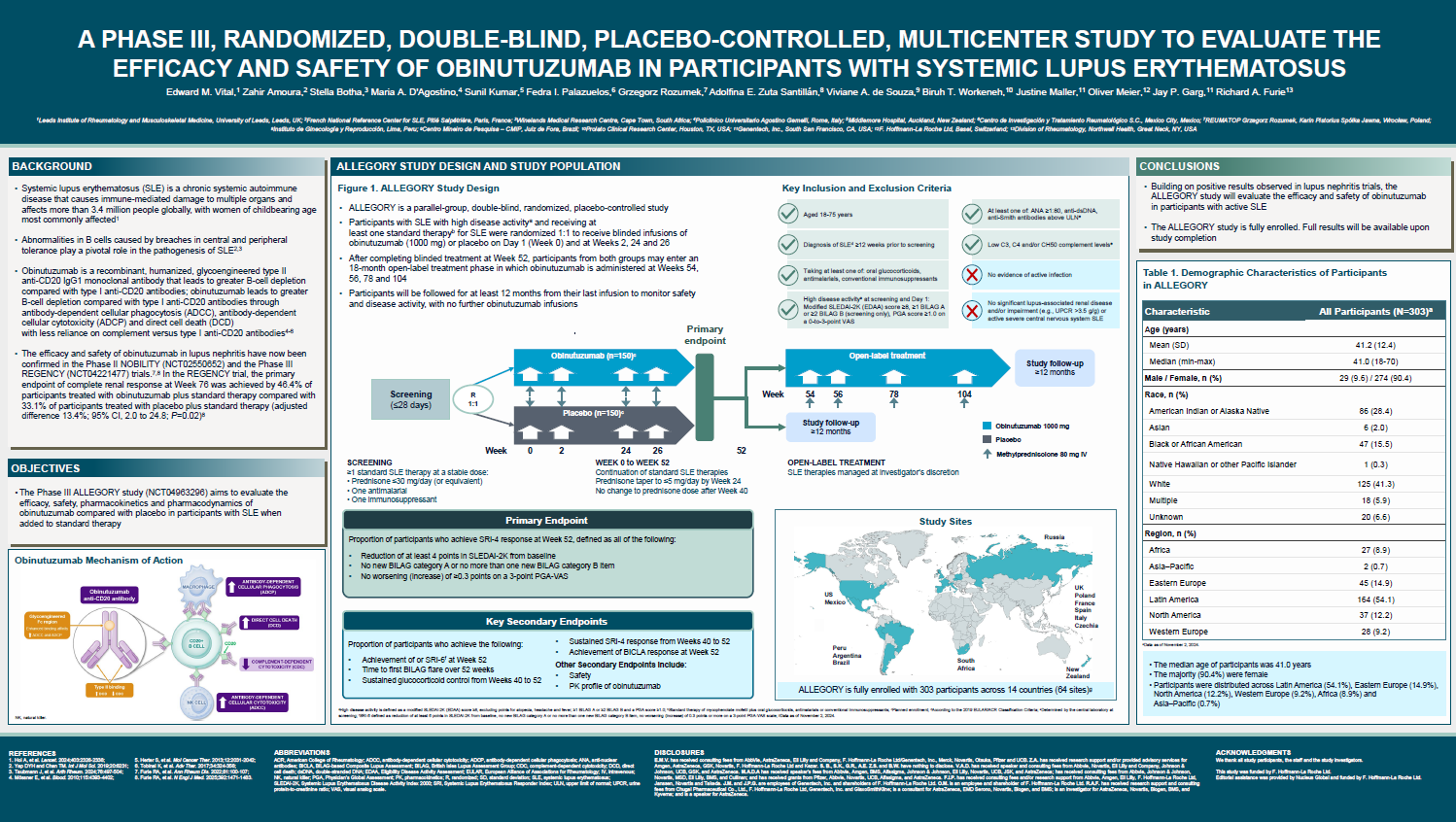Belimumab Effective in Lupus Nephritis Save

Dr. Rich Furie has lead a group of investIgators in reporting the significant efficacy of intravenous belimumab (BEL) when added to standard of care induction therapy in patients with active lupus nephritis.
This phase 3, 2-year study included 448 systemic lupus erythematosus (SLE) patients with biopsy proven lupus nephritis (class III or IV +/- V) patients who required induction therapy and have a UPCR ≥1 g/g. Patients on background therapy with mycophenolate or cyclophosphamide–azathioprine were randomized to receive monthly intravenous placebo or belimumab (10 mg /kg). The primary end point at week 104 was a primary efficacy renal response (PRP - based on GFR). Secondary outcomes included the time to a renal-related event or death was assessed.
At week 52, the the primary efficacy renal response was 43% for the BEL group and 32% for the placebo patients (odds ratio, 1.6; P=0.02).
After 2 years the primary efficacy renal response was 47% for the BEL group and 35% for the placebo patients (odds ratio, 1.6; 95% CI, 1.0 to 2.3; P=0.03) and a higher complete renal response (30% vs. 20%; OR 1.7; 1.1 to 2.7; P=0.02).
The risk of a renal-related event or death was significantly lower in belimumab patients (HR 0.51; 0.34 to 0.77; P=0.001). There were no new safety signals from this trial. But there were fewer episodes of increased proteinuria, impaired renal function or both favoring BEL (17 vs 39). Hence, the risk of a renal-related events was almost 50% lower among patients who received belimumab.
Dr. Furie is chief of Rheumatology at Northwell Health and this multicenter trial was guided by the Feinstein Institutes for Medical Research.
These results were presented to much acclaim at the recent EULAR 2020 virtual meeting, and provide support for adding belimumab to other aggressive regimens in treating lupus nephritis.











If you are a health practitioner, you may Login/Register to comment.
Due to the nature of these comment forums, only health practitioners are allowed to comment at this time.